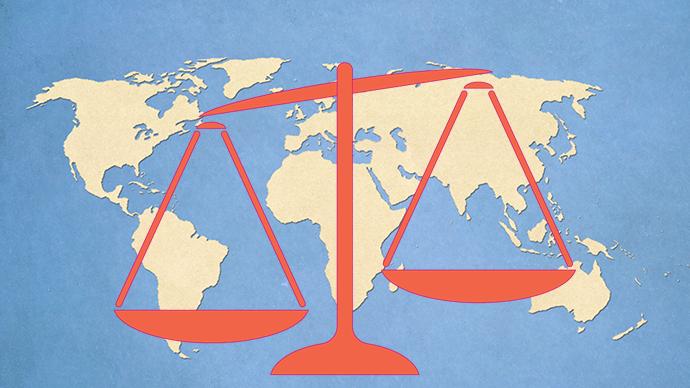What counts? Knowledge and ideology in global health research
This piece was published on the Collective blog and the original can be found here.
Research priorities set by funding institutions are steeped in ideology. In this piece, Collective member Ramya Kumar reflects on what these ideologies mean for knowledge production in global health.
Research requires funds, which are of limited availability in low- and lower-middle income countries (LMICs). The field of global health, in which I find myself located by virtue of my work in Sri Lanka, relies on funding from granting agencies and institutions mostly based in the global North. Although seemingly “neutral” and “evidence-based,” the research priorities set by these institutions are steeped in ideology.
Setting the terms
As a researcher based at a public university in Sri Lanka, access to research funding is limited. I could apply for the meagre research grants offered by the University Grants Commission or secure funds for studies that align with the (often problematic) objectives of local World Bank-supported projects. But my best bet might be to apply for the global health research grants offered by bilateral and multilateral organizations and private philanthropies based in the global North, which together drive “evidence” in global health.
The Bill and Melinda Gates Foundations’ Grand Challenges, a group of initiatives replicated across the world, stands prominent, aiming to “engage the world’s most creative minds” for technological innovation in global health (Grand Challenges, 2021). These grant calls remain far-flung from my research interests—social justice-oriented research that seeks to strengthen (public) healthcare systems. If I would like to build my research “portfolio,” I would need to substantially shift my research interests—both content and method—to align with the calls. Even then, my chances of securing funds would not be great because the lion’s share of global health funding is earmarked for northern-based researchers who must, as required by the grant calls, establish “partnerships” with researchers in LMICs.
Bounded evidence
My university is currently “partnering” with a UK-based institution on such a project, designed to pilot a mobile application for the diagnosis of a specific condition in the community setting. The project itself is not objectionable, and, in fact, does target a poorly managed health problem. But the technology-based “solution” does not really tackle critical health system issues that intensify the health problem.
I also recently participated in a series of meetings to craft a proposal to align with another grant call, this time to manage a disease that did not strike me as a priority concern in my setting. Regardless of their relevance or application, the findings of such grant-funded research will elicit “evidence” for donors and governments to invest in technologies to treat diseases, expanding markets for technology-based solutions in global health—prioritised since the advent of the Bill and Melinda Gates Foundation.
Let’s say that one gets past the barrier of securing research funds, and does conduct social justice-oriented research on a topic outside the provenance of mainstream global health. The next stumbling block is peer review. Along with colleagues, I recently went through peer-review with a reputed journal that publishes qualitative research. We were surprised to receive comments from the associate editor and a reviewer indicating that our approach was “biased” and premised on ideological assumptions. Neither seemed to have engaged with colonialism as a concept nor its (ongoing) relevance in global health. Nor did they seem to understand the irony of their defense of private healthcare. Peer-review processes define the boundaries of knowledge, adjudicating on what is publishable and acceptable for dissemination.

“Data-driven” conclusions?
Given the massive research output, this (controlled) “evidence” must then be collated. As numerical data on measurable variables override other ways of knowing in global health research, systematic reviews are placed at the pinnacle of the evidence hierarchy. Relevant here are also initiatives like the Lancet commissions, comprising “experts,” mostly based in the global North, brought together to deliberate and produce “evidence” on priority global health concerns. The Lancet Global Health Commission on financing primary health care (PHC) recently recommended LMICs to adopt publicly funded PHC, free at points of use, and situated within mixed public-private systems (Hanson et al. 2022). Putatively “evidence-based,” the ideological alignment of such recommendations with the values of hegemonic global health actors is clear (World Bank, 2021).
In sum, granting agencies (along with their donors) tightly control the research priorities and what is counted as “evidence” in global health. Academic structures and processes at elite universities as well as academic publishers are complicit in reinforcing these power arrangements. One way to resist this impasse might be to reflect on how we, as researchers, legitimize and reproduce the status quo in global health.
References
Grand Challenges (2021). Grand Challenges.
Hanson, K., Brikci, N., Erlangga, D., Alebachew, A., De Allegri, M., Balabanova, D., … & Wurie, H. (2022). The Lancet Global Health Commission on financing primary health care: putting people at the centre. The Lancet Global Health.
World Bank (2021). Walking the talk: Reimagining primary health care after COVID-19.

